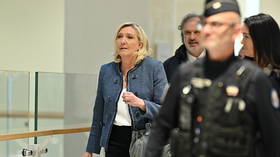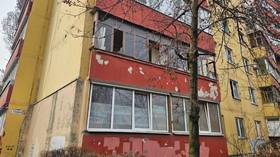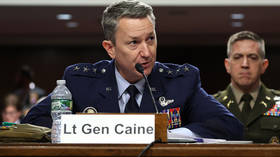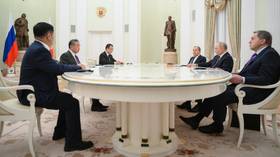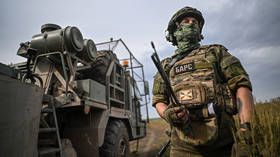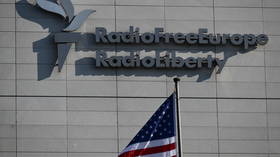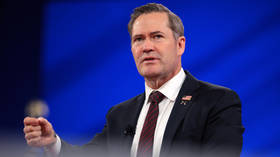Very vicious circle: UK govt hypes terror threat its policies create
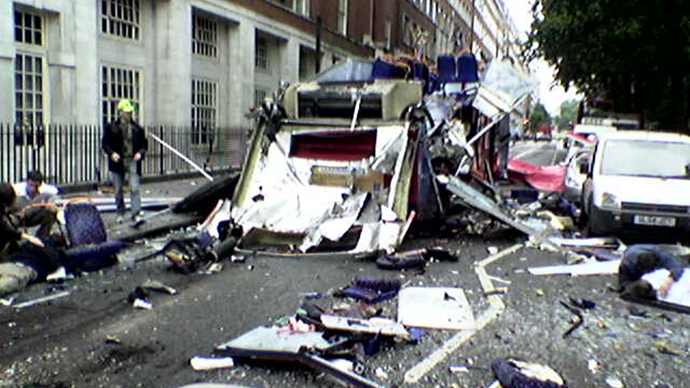
If the UK government really sought to keep the nation safe from terrorism, it would stop meddling in the internal affairs of Mideast states instead of hyping the Islamic terror threat, and at the same time, doing everything for it to be in place.
Exactly 70 years ago this autumn, British civilians faced a very real terror threat - in the shape of Nazi Germany’s V-2 rockets. While exactly 40 years ago, an IRA bombing campaign brought ‘The Troubles’ of Northern Ireland to the British mainland.
What is interesting about the events of 1944 and 1974 is that the government downplayed the threat to citizens, even though the threat of being killed or injured in the violence was greater than it is now. A V-2 rocket attack, for instance, killed 160 shoppers on one occasion.
Today though, with Islamic terrorism, the opposite has happened. The government keeps reminding us of the enormous dangers we face. No one disputes that there is an Islamist terror threat in the UK, we remember the terrible 7/7 bombings in London which killed 52 people in 2005, but the government seems keen to hype the threat, whereas in the past it played such threats down and didn't allow terror attacks to change our way of life. We have invasive security procedures at our airports, tanks appearing at Heathrow just a few days before the big anti-Iraq war march in London in 2003 and our private emails and phone calls intercepted in the so-called “war on terror.”
Meanwhile, truth-tellers and whistleblowers like Edward Snowden and Julian Assange are attacked by establishment gatekeepers for the help their revelations might give to “terrorists.”
Why this discrepancy? Why more is made of the terror “threat” today than it was in the past, when we were actually at greater risk from attack? Of course, there have been cultural changes: we live in an age where many things are over-hyped and sensationalized- a trend which the modern media has had a lot to do with.
But I think there are other factors at play too. The current “war on terror” fulfills important geopolitical and domestic goals for the West's elite.
Back in the 1940s, the British government simply wanted to defeat Nazi Germany as quickly as possible. They didn't want to publicize the threat from terror rockets as that would damage morale. In the 1970s, they didn't want us to panic about bombs on the mainland either.
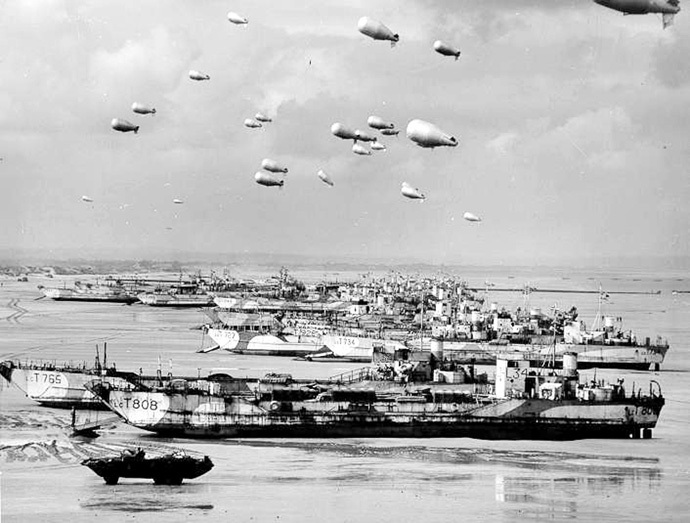
Now however, the elite want to “big up” the “war on terror” so that they can continue their interventionist policies in the Middle East and gain greater control over our lives, under the pretext of fighting terrorism. The terrorism “threat” can be used as an excuse for them to clamp down on democracy, limit free speech and destroy traditional liberties.
To get a sense of the perspective about the current “war on terror” let’s go back to early September 1944. Britain’s involvement in World War Two has now lasted exactly five years, but thankfully it seems that the end of hostilities is in sight.
The Allied liberators have made gains in Western Europe. Happily, from the point of view of British civilians, the V-1 rocket danger seems to be over. These “vengeance” rockets had killed over 6,000 people, but in August 1944, V-1 attacks became more sporadic. “Rumors had begun to circulate among people desperate for the war to be over that Germany had capitulated and the war was over” notes historian Juliet Gardiner in her book Wartime Britain 1939-45. On September 7, 1944, government minister Duncan Sandys told a press conference: “Things have been moving, and all I can say is what is patently obvious to everyone, and that is except possibly for a few last parting shots what is coming to be known as the Battle of London is over.”
But the minister spoke too soon. On the very next day, a new and even more terrifying Nazi weapon was unleashed on the people of London- the V-2. The V-2 was a 46ft long by 5ft rocket which carried a ton of explosives. V-2s were more terrifying than V-1s because of the greater damage they could do. They could raze an entire street to the ground.
“The incredibly loud bang that heralded each V-2 could make people up to 10 miles away think it was about to fall on them. Though fewer V-2s fell than V-1s, their terror lay in their unpredictability, and their dreadful impact. A single V-2 could cause a crater as large as 50 feet wide and 10ft deep,” informs Gardiner.
Imagine the terror that civilians in London and the southeast of England felt that fall. You never knew when or where a V-2 would strike. At any moment your life could be extinguished. There was enormous damage to infrastructure too.
“In 1944, in a completely blind and indiscriminate attack on London, more schools, more hotels, more civil defense and fire stations and more post offices were hit than in the far heavier ‘aimed’ bombing in 1940 and 1941”, writes Roy Irons in Hitler’s Terror Weapons. The worst single V-2 tragedy in Britain occurred on 25th November 1944, when a rocket hit a Woolworth's store at New Cross in London killing 160 shoppers and seriously injuring 108. There was another terrible attack too on Boxing Day (26th December 1944) when 68 people out celebrating Christmas, were killed in a pub in Islington. Overall, 2,754 people lost their lives in V-2 rocket attacks.
But despite the V-2 terror beginning in early September, it wasn't until November 9 that the British Prime Minister, Winston Churchill, made a statement about the attacks. And it was only on November 11 that the British press was finally allowed to report on the V-2s. Can we imagine such a situation today?
The government had not wanted to publicize the V-2 attacks as it was worried of the adverse impact it would have on morale. They also didn't want the Germans to know their attacks had caused so much damage. They were playing down the terror threat- not hyping it up, like today.
It was a similar story in 1974. “The Troubles” had come to mainland Britain. In June 1974, the Provisional Irish Republican Army, fighting for a united, independent Ireland free from British control, bombed Parliament, causing 11 injuries. In July, a bomb at the popular London tourist attraction, the Tower of London, killed one civilian, and injured 41 others. On 5th October 1974, four people were killed and 50 injured in bomb attacks on two pubs in Guildford, Surrey. 21 people were killed in pub bombings in Woolwich and Birmingham in November 1974. While this was going on, ”The Troubles” were continuing in Northern Ireland, then, as now, part of Britain. Overall in the period 1968-1998 over 3,600 people were killed in “The Troubles,” either by paramilitary groups or by the security forces.
The British government urged citizens to be on their guard and look out for suspicious packages, but they didn't try to scare us senseless about the bomb threats faced on the British mainland. We were encouraged to go about our daily lives and stay calm. We didn't have invasive security procedures at public gatherings, or statements from our leaders that we were involved in a never-ending “war on terror.” Threats were played down, not exaggerated. That’s even though the British elite themselves were often the target, as was the case with the bomb attack on the private home of Conservative party leader Ted Heath in December 1974.
Today’s “war on terror” though is very different. It’s hard to go a day in Britain without being reminded of the dangers we face or hear of a new terror “plot.” Since 2006, we've had UK Threat Levels, the current one is “Severe.” Interestingly, the threat has never slipped below “Substantial” since the system was introduced. There is also an Office for Security and Counter-Terrorism set up in 2007, a National Security Council, established by David Cameron in 2010 and a new position of National Security Advisor. In the last ten years, National Security in Britain has become a big business, as it has in the US.
No one doubts that Britain is a terrorist target due to our aggressive neo-con foreign policies, and that reasonable precautions need to be taken, but it’s hard to escape the conclusion that politics and not security considerations are driving current policy.
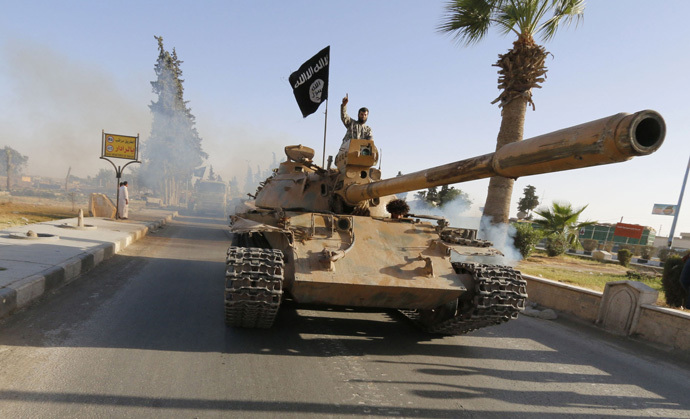
The “threat” from Islamic terrorism has to be kept alive, in order to justify interventionist policies in the Middle East and the neo-con policy of “endless war”, which enriches a tiny few at the expense of the vast majority. Recent developments involving ISIS illustrate the point. It was back in June that Prime Minister David Cameron told us that ISIS “were planning to attack us here in the United Kingdom” - even though as the BBC’s Frank Gardner pointed out , there had been no “public threat” made by ISIS of an attack on the UK.
It’s a classic example of how our foreign policies create the terrorist threat which our leaders then use as a pretext for more military interventions in the Middle East.
We’re currently at “war” with a group of fanatics (ISIS), who would not have existed if Britain hadn’t invaded Iraq to topple a secular government there in 2003 or set out to violently topple the secular government of Bashar al-Assad in Syria; a country whose security forces foiled a suspected al-Qaeda attack against the US Embassy in 2006.
A sensible British government that really wanted to make us safe from terrorism would ditch our current foreign policy and stop intervening in the affairs of sovereign states in the Middle East, and in particular stop trying to topple secular governments which were enemies of al-Qaeda-style terrorist groups.
But for the current pro-war elite, hyping up the Islamic terror threat while doing everything possible to make sure that terrorists continue to thrive serves a very useful purpose.
The statements, views and opinions expressed in this column are solely those of the author and do not necessarily represent those of RT.
The statements, views and opinions expressed in this column are solely those of the author and do not necessarily represent those of RT.




